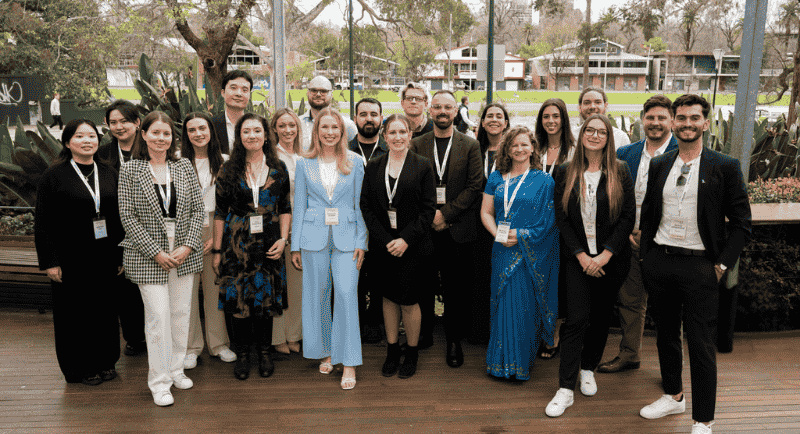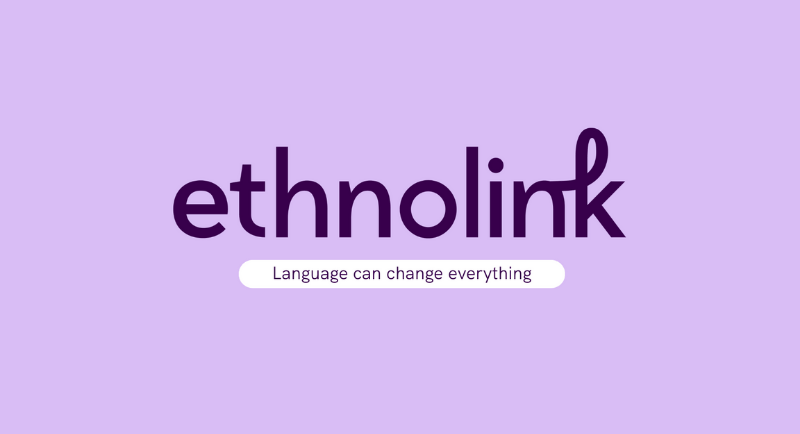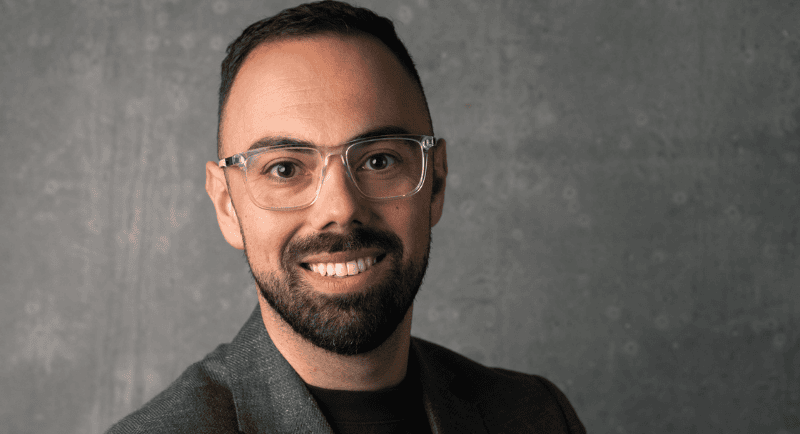“You can’t reach everyone in Australia if you don’t understand everyone in Australia. That’s the gap that we solve,” Costa Vasili, founder and CEO of Ethnolink, told Mediaweek.
He launched Ethnolink in 2011 initially as a specialist translation provider to help establishments translate reading material into the top spoken languages.
Vasili said the catalyst for the transition into a full-service agency happened during a project where the client requested a 72-page booklet translated into the top 10 languages spoken in Victoria.
“The problem with being a translation agency is that people come to you right at the end when they’re ready to translate, and they just need to get it done as fast as possible.
“I was really frustrated by our inability to make a big impact with the multicultural communities because we weren’t working at a more strategic level with our clients.
“That was the catalyst for wanting to go end-to-end, basically start at the insights level and the strategy, and then move into the translation later down the track.”

Ethnolink team
How Ethnolink bridges cultural gaps mainstream agencies can’t
Vasili noted that there are many communications professionals in Australia from native English-speaking and Anglo-Saxon may not have the communication skills or cultural competency to translate into communications for migrant and First Nations audiences.
“The gap we fill is that our organisational capability and team’s experience, including their lived experience, enables us to bridge that communication gap.
“We have been from the beginning a multicultural and First Nations communications specialist agency. We consult with the community, so our campaigns, projects, and insights are derived from the community and augmented with the strategic mindset of our communicators and our team.
“So, we listen to the community and then we translate that into something that’s going to work for a campaign.”
The core of the team is made up of 50 full-time staff based in Melbourne, along with handful of team members working remotely across the country.
“We have a variety of skill sets as well, people who come from a translation or interpreting background.
“We’re augmenting those skill sets, which have been our historical agency background, with new talent who bring diverse perspectives and diverse experiences with different strengths in strategy, research, copywriting, creative, and media planning.”
How Ethnolink leads with cultural insight
Ethnolink was recently appointed as the multicultural communications agency for the Victorian Department of Transport and Planning, working alongside Taboo and Snack Drawer.
Vasili said working in an agency village is a positive experience that allows them to deliver a nuanced campaign that meets the needs of specific audiences.
“Our experience has been really positive, and that’s supported by a really great client who had the vision to establish the village and is really working well with the agency village to deliver those campaigns.”
The agency is currently developing a natural hazards campaign for the Queensland Reconstruction Authority.
He explained the campaign was a true co-design with multicultural communities that began with robust focus groups and engagements across the country to understand the needs of multicultural communities, levels of hazards awareness, communication preferences, and formats.
“The first is that some migrant communities come to Australia and may not have experience with the types of natural hazards that we experience in their home country. An example of that may be bushfires, if the place in which you’ve migrated doesn’t really experience bushfires or wildfires, depending on where you’re from in the world.
“The second reason is that some migrant communities may settle in specific local communities in which they may not be aware of the natural hazards that occur specifically around them.
“For example, if you’re in far north Queensland and you’re more susceptible to hurricanes, or if you settle in an area that’s more flood-prone prone and you may not literally have any awareness of that.
“I’m really excited because this is the type of campaign that actually can make a huge difference, and we’re doing it with a very rigorous methodology and designing it with the community.”

Community consultation key to delivering authentic multicultural campaigns
Vasili said it was pleasing to see the number of specialist multicultural agencies in the industry continue to elevate the space, but noted that improvements should be made to the level that multicultural communities need.
He said more mainstream agencies approach us to be their multicultural specialist agency to work collaboratively on campaigns in the early stages.
“Where things don’t work particularly well is when we get brought in right at the end, and it’s we need to have this campaign go live in a few weeks.
“Often what we see is a really inappropriate slogan or campaign tagline that is witty in English and might have some alliteration or play on words, and that just simply doesn’t translate. Or the campaign creative could be really inappropriate, and it needs to be fully reworked.
“It could be showing people in certain attire which may be inappropriate for certain communities and made for the generic, mainstream Australia, which doesn’t represent me.”
To ensure the campaigns Ethnolink works on offer authentic cultural impact and are not just cringe-worthy and tokenistic is through discovery sessions with the communities they’re trying to reach, understand, and gain insights on.
When there is progress on strategy and creative, the agency moves into concept testing, additional consultations with communities for guidance on their thoughts, ideas, and perspectives.
He explained that once in-language assets are produced, communications should be checked again by people language.
“The important part is that monolingual review, meaning if it was in Filipino, Greek, Italian, then a community member who hasn’t seen the campaign is then provided with the assets in their language only, and they provide independent feedback.
“Theoretically, if we’ve gone through that process and we’ve done true co-design at the end, we should come up with the end product, outputs, and a campaign that feels authentic and real, and at that final check, if there’s something that’s been missed still, then we know we’ve got a problem.”
“It really leans into the methodology of consulting with the community. Sometimes clients want us to shortcut and cut to the chase, but you’re missing the vital opportunity to make it feel authentic, real, and that it is not tokenistic for your audience.”
From purpose-driven roots to broader industry impact
Vasili is optimistic that Ethnolink will continue to expand its work beyond government and not-for-profit sectors with clients that have a positive impact.
“Often that aligns with certain government programs and government priorities, as well as the interests and priorities of not-for-profits.
“We do work in certain commercial spaces as well, particularly where organisations in commercial settings are trying to reach migrant audiences or international audiences that are coming to Australia, such as tourists.
“Our focus is on working with government and not-for-profit and other organisations that have a very strong purpose for why they exist.”
Vasili said that the industry is taking note of how significant a player they are in the industry.
“We are Australia’s largest specialist multicultural communications engagement agency, but we’ve been very much flying under the radar for many years, not really caring about the press and beating our own chest.”
Looking ahead, he said the industry can expect them to continue to do the same work they are doing now and focus on authentically helping organisations reach multicultural communities.
Vasili also noted they hope to continue working in partnership with other agencies that want to help their clients reach multicultural communities in integrated end-to-end campaigns, village arrangements.
The agency has also seen growth with the acquisition of Sydney-based agency Language Professionals, which had worked on translation projects for the 2000 Sydney Olympics bid.
“We’re still currently actively scoping different acquisition opportunities in the industry. So long as we have the opportunity to continue working on great, impactful projects, then I will continue to grow the agency.”
Top image: Costa Vasili
